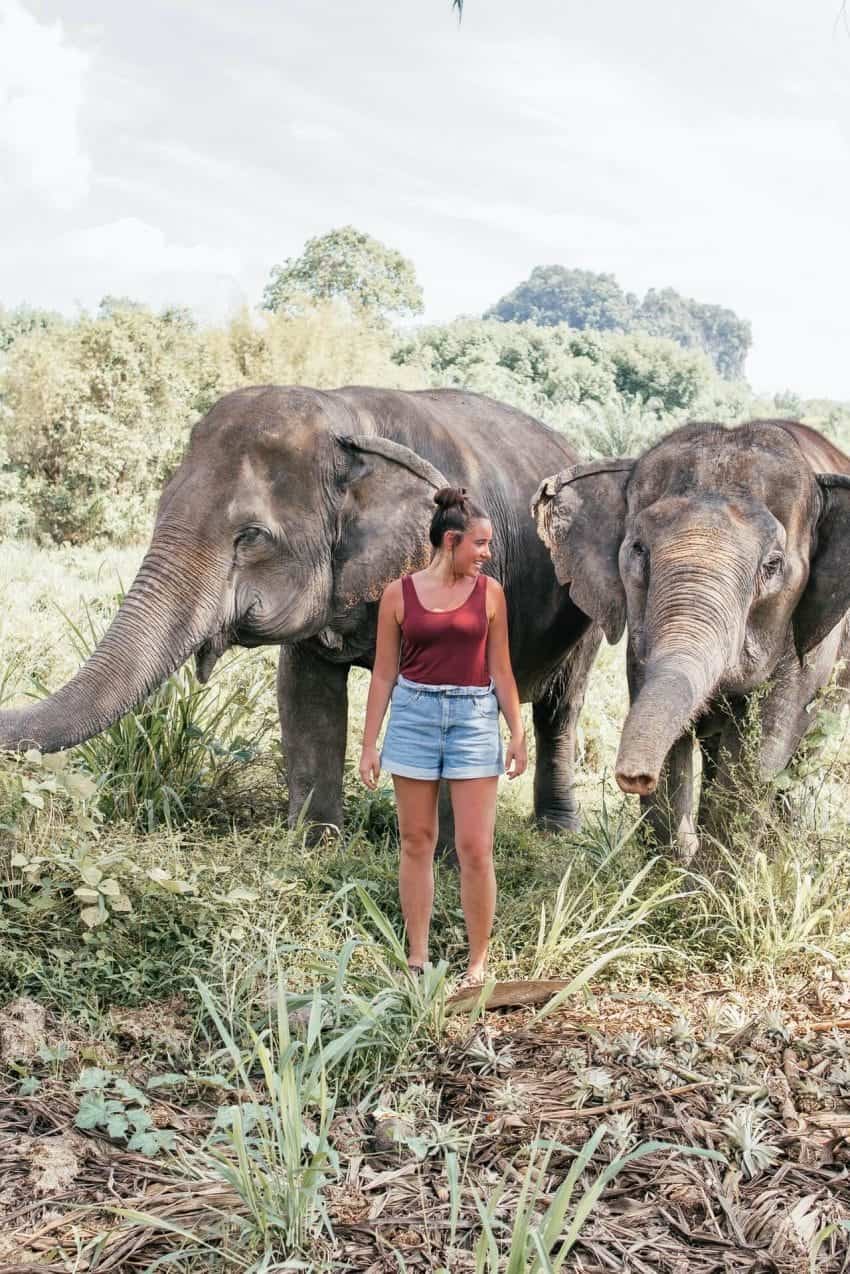Zoology Degree: What Can You Do With It
Updated: June 19, 2024

There aren’t many degrees you can study that allow you to work closely with animals. There are even less that have a greater impact on the preservation of animal species. For those with a keen interest in studying and helping animals, you might want to consider doing a zoology degree.
Before you commit to completing a zoology degree, you should take the time to learn more about it and consider your options. There are some demanding required courses, and you’ll likely have to find a specialty to concentrate on. You’ll also need to weigh different career options once you finish your zoology education.
The good news is, we’ve gathered all the details you’ll need to make an informed decision on whether or not you’d like to get a zoology degree. Read on to learn more about this fascinating field and how you can become a part of it.

Photo by Pixabay from Pexels
First of All, What Is Zoology?
Zoology is a branch of biology that focuses on the study of both living and extinct animals.
Zoology specializes in taking a look at different elements that play a part in animal survival and well-being, such as evolution, genetics, physiology, behavior, habits, interactions, as well as their environment.
What Does a Zoologist Do?
Zoologists can do a lot of things.
Since zoologists study animals in both their natural habitats and in man-made environments, such as zoos and aquariums, they’re able to get a deeper understanding of species and their needs. This makes them experts in developing ways to conserve and protect endangered species.
Zoologists can also conduct experiments with animals in different settings in order to study their behavior. They may also observe and collect other data, such as reproduction habits, migration patterns, diseases, and habitats to gain a deeper understanding of a species.
Since they closely study and monitor animals and their environments, many zoologists are particularly interested in how global warming affects animal species. Zoologists look at how their behaviors, habitats, food, and well-being are affected by their environments.
These are only general examples of the different things zoologists can do. There are many specialties, a few of which we’ll touch upon later, and each one brings with it different areas of study and expertise.
How Long Does it Take to Become a Zoologist?
While there are a number of paths you can go down when studying zoology, as well as multiple specialties that have different timelines, zoologists generally need to reach a high level of study in order to get the career they want.
Entry-level jobs for zoologists might only require a bachelor’s degree, but if you want to do more specific research or advance your career, you’ll need additional degrees.
The exact number of years differs based on what level of education you’d like to achieve. If you can get your dream zoology job with a bachelor’s degree, you’ll be out of school in four years. However, if you want to conduct specific research, you’ll likely need a PhD and you could be studying for up to 10 years.
Here are 4 different educational tracks you can expect to go through if your ultimate goal is an advanced zoologist career.
1. Bachelor’s Degree
Anyone who wants a career in zoology needs to begin with a four-year bachelor’s degree in the field or in a related one. If you don’t want to do a zoology degree or colleges near you don’t offer one, then you can consider either an online zoology degree or a similar program of study.
You can major in something like biology and ecology, as long as you take the pre-requisite classes that a zoologist would need. Aside from the basic courses, you might also consider taking courses related to statistics, math, or computer science in your bachelor’s degree. These classes will help you analyze data when researching species and use relevant software.
2. Zoology Internships
As with any degree, employers prefer hiring candidates who have some tangible experience in the field. Getting an internship either during your bachelor’s degree or afterward will help you stand out from the crowd when applying for jobs.
In order to gain experience, an internship is ideal, but if it’s not possible, then you can also look for volunteer work with animals, a part-time job at a zoo or aquarium, or being an assistant in a zoology-related research project at your college.
3. Master’s Degree
As a continuation of your bachelor’s degree, a master’s in zoology really gives you a leg up in the job market. During your master’s degree, you’ll likely conduct deeper research, do a thesis project, and even start your zoology specialty. With a master’s degree in zoology, you’ll also be able to teach.
4. PhD Degree
If you’re really interested in research as a zoologist, then you might need to stay in school until you’ve finished a PhD degree. While a PhD isn’t necessary for everyone, you should consider if a PhD is right for you based on your career goals. With this degree, you’ll be able to conduct major research and lead teams or act as a director for different projects.
Keep in mind that a PhD takes years, so you can expect to be in school for an additional few years after your bachelor’s degree. You’ll also need to ace your exams, present original research, and defend your thesis — but at the end of it all, you’ll be at the top of your field!
What Kind of Classes Will You Take in a Zoology Degree?
Now that you have a better understanding of the path for your education as a zoologist, you might be wondering what kind of things you’ll be learning.
Let’s take a closer look at some of the topics you’ll cover in-depth when pursuing a zoology degree.
- Physics
- Chemistry
- Cellular biology
- Animal anatomy
- Ecology
- Molecular biology
- Genetics
- Physiology
- Biodiversity
- Ecology
- Evolution
- Math
- Organic chemistry
- Biochemistry
- Calculus
- Plant biology
- Oceanography
- Entomology
The courses you end up taking will depend on what you’d like to do with your degree, how long you study for, and where you study. Of course, if you’re planning on specializing in a specific area of zoology, your course list will look different. Still, the courses above are ones you can expect to see on your class list when doing a bachelor’s, master’s, or even a PhD degree in zoology.
3 Zoologist Degree Specialties
We’ve mentioned zoology specialties a few times, but let’s take a closer look at different ones you may want to consider studying.
There are a number of different specialties you can choose from depending on your particular interests, but these are some popular ones that you might want to explore further.

Photo by Nikki Williams from Pexels
1. Marine Zoology
If you have a fascination with aquatic life, then marine zoology or biology can be the perfect specialization for you.
With this specialty, you’ll take a look at the underwater world and take a look at marine conservation, such as how global warming affects sea life and the aquatic food chain. The courses you take during your studies will focus more on marine life, such as fish ecology, marine pollution, and conservation methods, among others.
2. Animal Behaviorist
Are you interested in the way animals interact with each other and their environments? Well, you should consider studying animal behavior.
With an animal behaviorist specialty, you’ll study things like animal psychology, anthropology, and ecology. You’ll also observe animals very closely in order to learn more about their habits when it comes to finding food, mating, hibernation, and more.
3. Conservation Zoology
Another important field of study within zoology is conservation. With this specialty, you’ll take a look at how to manage and protect wildlife, particularly those who are at risk of extinction or those who are most affected by climate change.
In this specialty, you’ll take courses that focus more on animal behavior, nutrition, and reproduction. Since you’ll also likely study animals in captivity, you’ll learn more about the health and well-being of these animals.
Where Can You Work As a Zoologist?
Many people may assume that career options for zoologists are limited to zoos or aquariums, but that’s not the case. Zoologists can take on a wide variety of jobs, and while there are many career paths within zoos and aquariums, such as running breeding programs, those aren’t the only options.
Here are some careers and places of work to consider with a zoology degree:
- Conservation groups: Zoologists often work with conservation groups where they have a number of roles, including animal release and rehabilitation, help with planning ecotourism projects, or assist in lobbying governments for policy change.
- Museums: Some zoologists also work in museums where their jobs often include curating exhibits, researching, and public education.
- Veterinary medicine: Zoologists are hired to help develop medical drugs for pharmaceutical companies specialized in veterinary medicine.
- Academia: If you get a higher degree in zoology, such as a master’s or PhD, you can continue your time in university by becoming a professor. This allows zoologists to teach a new generation while still participating in important research.
- Government jobs: People with zoology degrees can be hired by government offices or laboratories to help conduct research, studies, or work on policies that affect animal conservation.
Other Job Options with a Zoology Degree
Aside from the places of work and careers mentioned above, there are some other jobs zoologists work that seem less obvious.
The truth is, not everyone with a zoology degree is going to be working in direct contact with animals or conducting research projects. There are plenty of other ways to contribute to the well-being of animals and species without working with them in a close setting.
Many graduating zoologists need to think outside the box in order to find a good career, and this often means working in fields that are loosely related to zoology. Working these kinds of jobs doesn’t mean your zoology degree won’t come into good use, just that the courses you took and the skills you learned might be used in a different way.
If you’re wondering what else you can do with a zoology degree, here are a few other job options for graduates:
- Environmental consultant
- Animal nutritionist
- Science writer
- Environmental education officer
- Toxicologist
- Veterinary nurse
- Research scientist
- Biomedical scientist
- Animal physiotherapist
- Marine biologist

Photo by Polina Tankilevitch from Pexels
Job Demand and Average Salary for Zoologists
Before you enter the field and even before you begin your degree, it’s important to get a good overall understanding of your job prospects after graduation. This includes looking at the job demand currently, and the projected demand for after you finish your zoology degree.
At the moment, jobs in the field of zoology and wildlife biology are expected to continue to grow by 5% until 2022. While any increase in job demand is good, this is less than average compared to other occupations.
However, there is a silver lining. Since zoology is such a specific field, most people who enter the field don’t switch to a different one during the course of their careers. This means that as people retire, the job demand will increase.
Still, it’s important to remember that the field of zoology is very competitive since there isn’t a huge variety of available jobs, especially depending on your location. Since the government employs a lot of zoology graduates, the job demand for federal jobs really depends on their budgets.
The U.S Bureau of Labor Statistics lists the median salary for a zoologist in 2019 as $67,200. The average salary can increase or decrease depending on what state you work in as there are states that see a higher demand for zoologists.
For example, Washington, Florida, California, Oregon, and Alaska have the highest employment levels for zoologists, while zoologists get paid the most in the specific areas of the District of Columbia, Massachusetts, Maryland, Alaska, and Connecticut.
The average salary for zoologists also varies depending on your industry. Employees in the federal industry earned on average $84,370 in 2019, which is higher than the national average.
By comparison, zoologists who work at museum or historical sites earned on average $54,750 in 2019.
Aside from the federal government, the most highly paid industry for zoologists to work in was computer systems design, where employees earned an average of $98,520 in 2019. Clearly, those extra math, statistics, and computer sciences classes in university can really pay off!
The Bottom Line
At the end of the day, the average salary, job demand, or difficult university courses shouldn’t deter you from pursuing a zoology degree. If working with animals and researching conservation is your passion, then this field is right for you.
If you’d like to work in the broad field of zoology but more on the technical side, there are other programs you can study instead of or in conjunction with a zoology degree. Consider doing online courses in computer sciences, education, or business administration to round out your skills, diversify your CV, and increase your earning potential.
